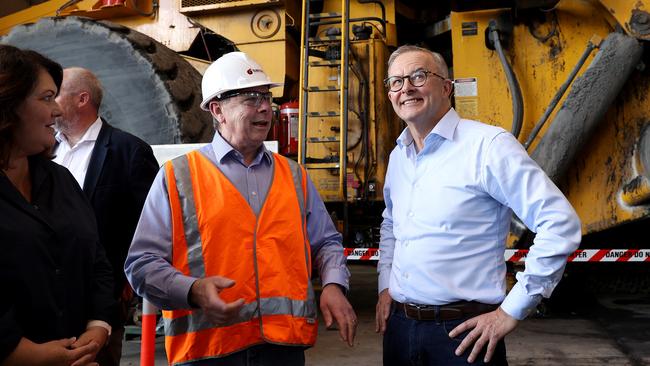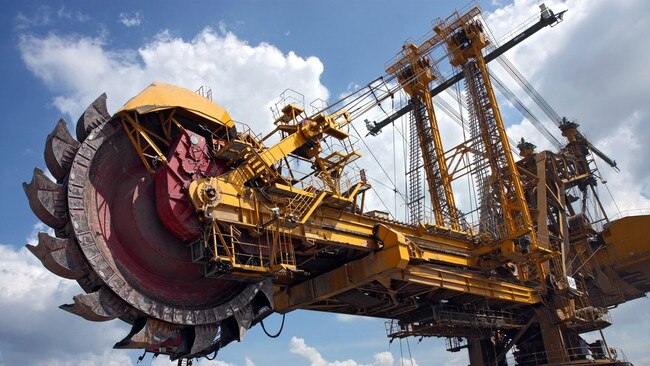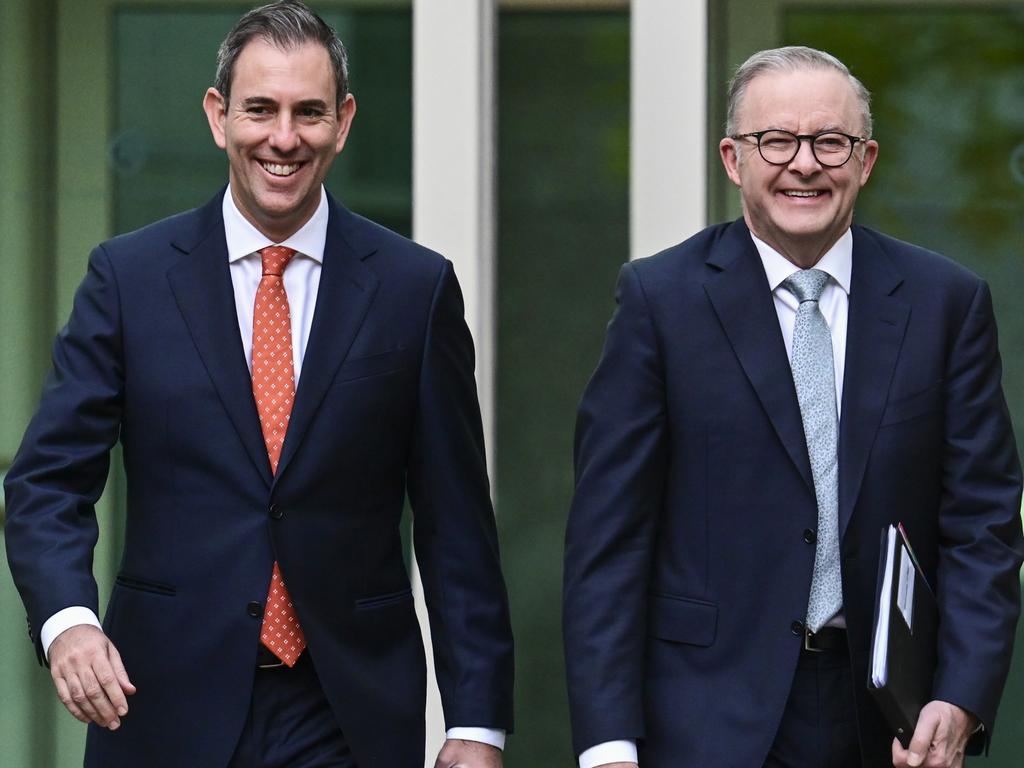PM’s IR agenda could trigger $13bn wipe-out and $373-a-year reduction in real wages
Anthony Albanese’s IR changes could trigger a reduction in real wages of $373-a-year, according to new modelling.

Anthony Albanese’s industrial relations crackdown on miners could trigger a $13bn hit to the economy and reduction in real wages of $373 a year, according to new industry modelling based on a 1 per cent fall in productivity.
The Centre for International Economics modelling, commissioned by the Minerals Council of Australia, warns Labor’s proposed suite of IR reforms could wreak havoc on flatlining productivity and flexibility across the mining sector and related supply chains.
MCA chief executive Tania Constable, who is leading a multimillion-dollar industry-wide campaign against the government’s “same job, same pay” reforms due later in the year, said the CIE figures revealed the “alarming toll of a restrictive industrial relations agenda”.
The macro-economic modelling says restrictions on the mining sector and supply chains – excluding oil and gas – could spark a $13bn annual hit to the economy and a reduction in real wages of $373 a year on average for all workers. The data suggests a 1 per cent fall in productivity would reduce consumption in the mining sector by $6bn.
Australian Bureau of Statistics national accounts figures last week revealed economic growth had slowed sharply to 0.2 per cent, with a 4.6 per cent fall in productivity in the March quarter.
Ms Constable said proposed IR reforms including same job, same pay changes, employee-like rules, and multi-employer bargaining laws would “drag down Australia’s already-sagging productivity”.
“This is the cost of bad industrial relations policies. Workers end up paying in the long run, and the economy suffers at a time when we need more economic growth, more jobs, and more investment,’’ Ms Constable said.
“This is why the business community is united in its concerns that a suite of government policies – some already legislated and others subject to consultation – will dampen investment, restrict flexibility in the labour market, and reduce worker incentives to move from low- to high-productive workplaces.” Ms Constable said a 1 per cent hit to productivity was a “conservative estimate, given the compounding effects of such restrictive industrial relations policies”.

“Businesses of all shapes and sizes need the ability to ramp up and ramp down as economic conditions require and as opportunities arise. When you legislate workplace rigidity, productivity suffers,” she said.
“When you remove the incentive of reward for effort and experience, productivity suffers.”
The CIE report, titled Potential Impacts of Lowering Labour Productivity in the Mining Sector, includes simulations examining the potential implications of reduced productivity across the mining industry. The report tests a range of potential outcomes including productivity reductions of 1, 2 and 5 per cent.
“If the labour productivity shock is 5 per cent, the impacts are around 4.9 times bigger than those of the 1 per cent shock,” the report states.
Workplace Relations Minister Tony Burke this week told The Australian that the government was open to phasing in its contentious same job, same pay labour hire changes.
Following negotiations with resource sector employers, Mr Burke is examining a new test preventing specialist mining and energy contractors being inadvertently caught-up in the IR changes.
Mr Burke – who rejects employer claims that the IR laws would negatively impact productivity – has reassured employers that there are “legitimate purposes for labour hire that we don’t want to get in the way of, and they include for specialist workforce, for surge workforce and for temporary replacement”.

The CIE report includes impacts on related supply chain industries including petroleum products, chemicals, metal products, manufacturing equipment, electricity supply, construction, wholesale trade and railway freight transport.
“Lower labour productivity in the top 10 supplying industries has significantly higher impacts on the economy than shocking in the mining industry alone, given the same magnitude of shock,” it states. “For example, a 1 per cent reduction leads to a 0.53 per cent (or $11.5bn per year) reduction in national GDP, a 0.46 per cent (or $5bn per year) reduction in household consumption, and a 0.48 per cent (or $6.40 per week) reduction in the real wage rate in the whole economy.
“The GDP and consumption impacts are equivalent to 6.7 times of the impacts of the same 1 per cent reduction in labour productivity in the mining sector, and the real wage impacts are 9.5 times higher.”







